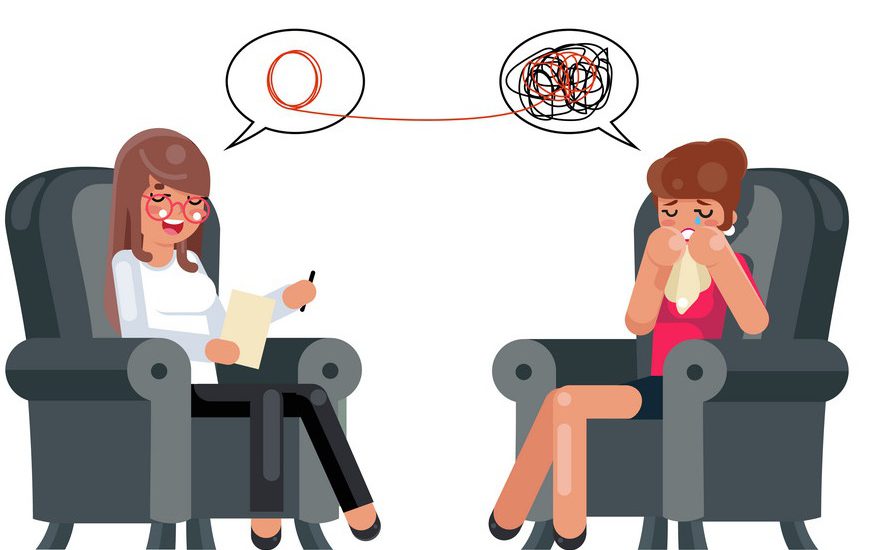Medical Psychologists Vs Psychiatrists: Trick Differences You Should Know
The distinction between scientific psycho therapists and psychiatrists is critical for individuals looking for psychological wellness care, as each expert offers one-of-a-kind proficiency shaped by their academic histories and therapy methodologies. This difference raises crucial inquiries concerning which specialist may be best suited for different mental health and wellness demands.
Educational History
Several people looking for mental health services may question the differences in educational backgrounds between medical psychologists and psychiatrists. The distinctions are vital and considerable for comprehending the functions each professional plays in mental healthcare.
, which requires considerable training in mental theories, study techniques, and clinical technique. Furthermore, clinical psycho therapists are needed to finish a pre-doctoral internship and get licensure, which involves passing a nationwide evaluation.
In comparison, psychiatrists are clinical doctors (M.D. or D.O.) that complete a four-year clinical degree complied with by a residency in psychiatry, which lasts an additional 4 years. Their medical training furnishes them to recognize the biological facets of mental problems, enabling them to suggest drugs and offer a clinical perspective on therapy.
These differing instructional paths emphasize the distinct knowledge each specialist brings to the area, forming their methods to therapy, patient, and diagnosis treatment. Comprehending these distinctions is essential for people browsing the psychological health system.
Treatment Techniques
Varied therapy strategies identify the techniques of clinical psychologists and psychiatrists, mirroring their distinctive training and locations of expertise. Medical psychologists primarily utilize psychotherapy, employing techniques such as cognitive-behavioral treatment (CBT), dialectical behavior modification (DBT), and psychodynamic therapy. Their focus is on mental and emotional assessment, treatment, and the growth of coping techniques to address numerous psychological health and wellness conditions. They might deal with groups, pairs, or individuals, tailoring their healing techniques to the particular needs of their customers.

Both specialists might team up in treatment plans, making sure thorough treatment that addresses the complexities of mental health. Ultimately, the option of treatment technique might depend upon the nature of the condition, the choices of the person, and the details proficiency of the clinician involved.
Role in Mental Healthcare

On the other my review here hand, psychoanalysts are medical physicians who focus on the diagnosis and treatment of mental health and wellness problems, often employing a biomedical approach. They can recommend medications to handle psychological signs and are educated to think about the physical facets of mental wellness, such as neurobiology and pharmacology. This medical point of view allows psychoanalysts to resolve complicated instances that may need a mix of medication administration and psychiatric therapy.
Together, scientific psycho therapists and psychiatrists produce a thorough mental health and wellness anchor treatment framework, attending to both medical and mental demands. Collaboration between these experts makes certain that patients receive alternative treatment, inevitably improving treatment results and boosting the quality of life for individuals experiencing mental health and wellness obstacles.
Kinds Of Disorders Treated
While both clinical psycho therapists and psychoanalysts attend to a broad range of psychological wellness disorders, their approaches and locations of know-how commonly dictate the specific problems they treat. Clinical psycho therapists mainly concentrate on the evaluation and treatment of psychological, behavioral, and cognitive problems with psychotherapy.
On the other hand, psychiatrists are clinical doctors that can recommend medications and have actually specialized training in the biological facets of psychological health and wellness. They usually manage extra complicated psychological conditions that may call for pharmacological treatment, such as schizophrenia, bipolar condition, extreme anxiety, and compound make use of conditions. Psychoanalysts may incorporate medication administration with psychotherapy however generally concentrate on the biochemical and medical parts of mental health and wellness concerns.
Comprehending these differences can help individuals look for the appropriate care customized to their specific mental health other and wellness demands, ensuring they get one of the most effective treatment for their problems. elementa psychologists kew.
Insurance and Cost Factors To Consider
Browsing insurance and cost considerations is a crucial element for people looking for psychological health services from medical psycho therapists or psychoanalysts. Both professions may accept different insurance coverage strategies, yet the level of insurance coverage can differ considerably. Psychiatrists, who commonly suggest medication, may have different billing practices compared to medical psycho therapists, who normally concentrate on psychiatric therapy.
Insurance policy reimbursement for psychiatric solutions might be more favorable due to the medical nature of their practice. Patients might run into greater deductibles or co-pays when seeking advice from a psychiatrist. On the other hand, clinical psycho therapists might supply services billed under mental wellness benefits, which can lead to lower out-of-pocket costs, relying on the insurance provider's policy.
Moreover, people ought to consider the regularity and period of therapy sessions when evaluating prices. While psychiatrists might supply shorter, medication-focused gos to, clinical psycho therapists typically engage in longer sessions committed to restorative strategies.
Eventually, understanding the certain regards to one's insurance strategy, including network availability, coverage limits, and pre-authorization requirements, is important. Individuals are urged to contact their insurance supplier to make clear advantages and explore alternatives for affordable psychological health treatment.
Verdict
In summary, the differences between scientific psycho therapists and psychiatrists are critical for informed choices regarding mental wellness care. Educational background, therapy approaches, and functions in psychological wellness considerably vary in between the two occupations. While professional psychologists mainly concentrate on psychiatric therapy, psychiatrists integrate medicine monitoring right into their practice. Comprehending these differences enhances the capability to choose the ideal professional based on private requirements, whether they entail treatment, drug, or a mix of both for optimal mental health results.
The difference in between professional psycho therapists and psychoanalysts is vital for people seeking mental health treatment, as each specialist deals special experience formed by their instructional histories and treatment approaches.The roles of professional psycho therapists and psychoanalysts in mental health treatment are corresponding, reflecting their distinct training and competence.While both clinical psycho therapists and psychoanalysts deal with a wide array of psychological health and wellness disorders, their strategies and areas of knowledge frequently determine the certain conditions they deal with.Navigating insurance and expense considerations is a critical element for individuals looking for mental wellness services from professional psychologists or psychiatrists.In summary, the distinctions in between medical psychologists and psychoanalysts are essential for educated decisions regarding mental health care.